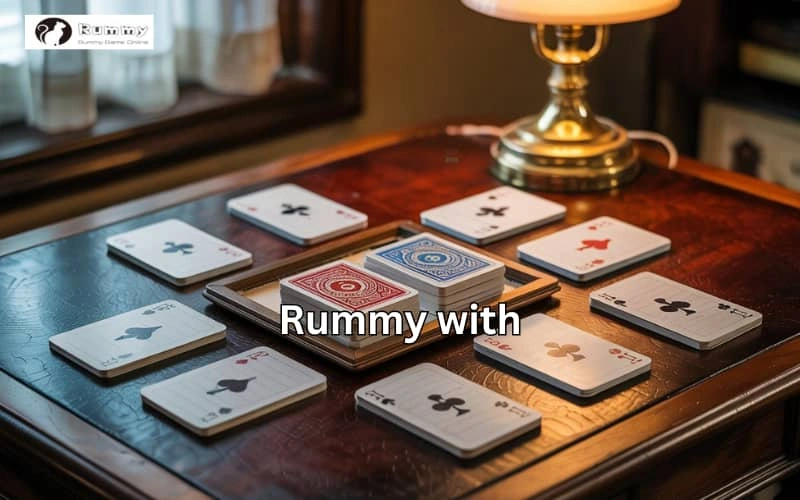Rummy with popular card game enjoyed by people worldwide. It involves a blend of skill, strategy, and luck, making it both challenging and rewarding. Whether you’re a beginner or an experienced player, mastering the game requires practice, knowledge of the rules, and effective strategies. In this article, we will explore six key strategies to help you improve your rummy game skills and increase your chances of winning.
Understanding the Basics of Rummy
Before diving into strategies, it’s important to have a solid understanding of the game. Rummy with typically played with two to six players using a standard deck of 52 cards. The objective of the game is to form sets and sequences from the cards dealt to you. A sequence is a group of consecutive cards of the same suit, while a set is a group of three or four cards of the same rank but different suits. The first player to form a valid declaration wins the game.
While the rules are simple, winning requires more than just following basic gameplay. The key to success lies in developing strategic thinking and anticipating your opponents’ moves.
Strategy 1: Prioritize Forming Sequences
In rummy, sequences are more valuable than sets. The reason for this is that sequences are required to form a valid declaration, while sets are optional. Therefore, it is crucial to prioritize forming sequences early in the game. Aim to create at least one pure sequence, which does not require a joker. A pure sequence is necessary for a valid declaration, and having one ensures that you can declare at any time during the game.
Focus on collecting cards that can help you form a consecutive sequence. For example, if you have a 5 of hearts, aim to collect the 4 and 6 of hearts. This will give you the foundation of a sequence, allowing you to use other cards more efficiently.
Strategy 2: Use Jokers Wisely
Jokers are a powerful tool in rummy with, as they can substitute any card to form a set or sequence. However, it’s important to use them strategically. Avoid using jokers too early in the game unless they help you form a pure sequence. The reason is that relying too much on jokers can limit your options as the game progresses. Instead, try to use them to complete sets or sequences once you’ve made progress with your other cards.
Additionally, it’s important to keep track of the jokers your opponents are using. If you notice that they have used a joker to form a set or sequence, it can give you clues about their hand and help you make better decisions.
Strategy 3: Discard High-Value Cards Early
One of the most important aspects of rummy with minimizing your points in case you don’t win the game. In rummy, the points are counted based on the cards left in your hand when another player declares. High-value cards, such as face cards (King, Queen, Jack) and aces, can accumulate significant points if left in your hand. To reduce your risk of a high score, try to discard these cards early on, especially if they are not part of a sequence or set.
It’s also a good idea to discard cards that you don’t need but may be valuable to your opponents. This prevents your opponents from completing their sequences or sets rummy with. Always pay attention to what your opponents discard and avoid holding cards that might be helpful to them.

Strategy 4: Observe Your Opponents
One of the best ways to improve your rummy with skills is to observe your opponents carefully. Pay attention to the cards they are discarding and picking up. This can give you valuable insights into their strategy and the types of sets or sequences they are aiming to form. If you notice that an opponent is consistently picking up a particular card, it may indicate that they are trying to complete a sequence or set. You can use this information to avoid discarding cards that may benefit them.
Additionally, observing your opponents’ reactions and body language can help you gauge their level of confidence. If they seem unsure about their moves, they may be struggling to form a valid declaration. On the other hand rummy with, if they appear calm and focused, they may be close to winning. Use this information to adjust your strategy and make better decisions.
Strategy 5: Keep Your Options Open
Flexibility is key in rummy with. The more options you have available, the better your chances of forming valid sequences or sets. Try not to fixate on one particular combination of cards too early in the game. Instead, keep your options open by collecting cards from different suits and ranks. This way, if your primary strategy doesn’t work out, you can adapt and form alternative sequences or sets.
It’s also important to avoid holding onto cards for too long that you don’t need. If you have cards that do not contribute to your strategy, consider discarding them to open up space for more useful cards. The more flexibility you have, the easier it will be to make adjustments as the game progresses.
Strategy 6: End the Game Quickly
One of the most effective strategies in rummy with to try to end the game quickly once you have formed a valid declaration. The longer you wait, the higher the risk that your opponents will complete their sets or sequences, forcing you to keep unnecessary high-value cards in your hand. By declaring early, you can reduce the number of points you will lose if another player wins.
However, ending the game too quickly without completing your hand can be risky. Ensure that you have a valid declaration before attempting to declare. The goal is to strike a balance between completing your hand and preventing your opponents from gaining an advantage.
Conclusion
Improving your rummy with skills requires practice, observation, and strategic thinking. By focusing on forming sequences, using jokers wisely, discarding high-value cards early, observing your opponents, keeping your options open, and ending the game quickly, you can significantly improve your chances of winning. Remember, rummy is a game of both skill and luck, so even with the best strategies, a little bit of luck can go a long way in securing victory. With these strategies in mind, start practicing and refining your rummy with skills to become a more skilled and competitive player.








